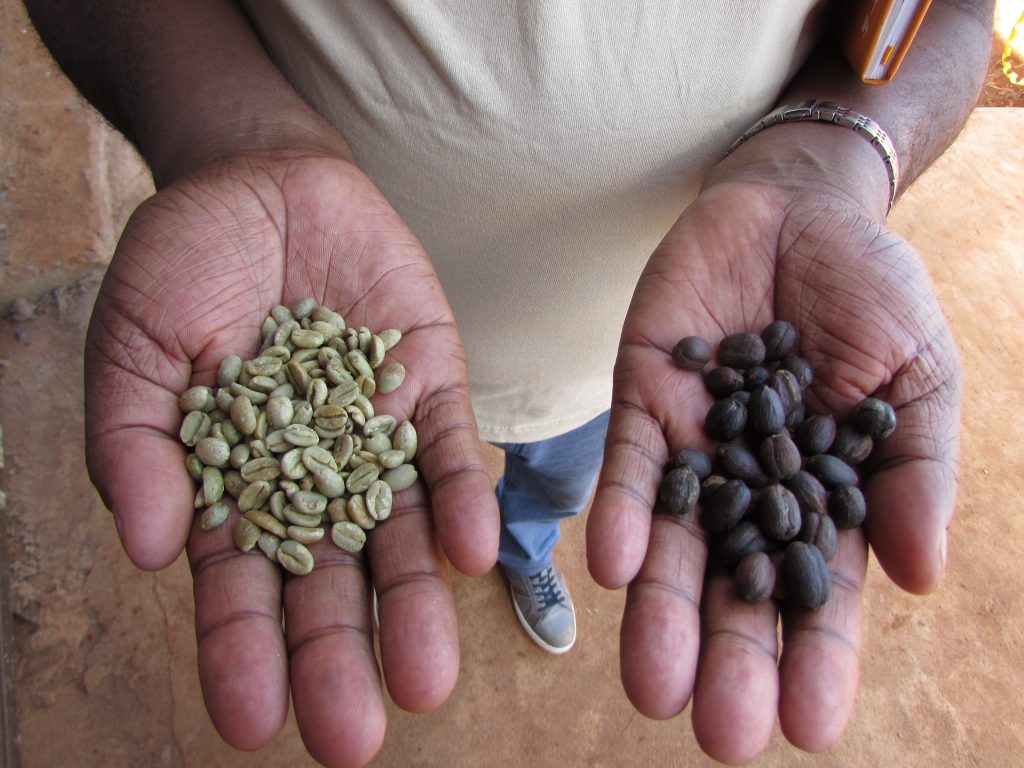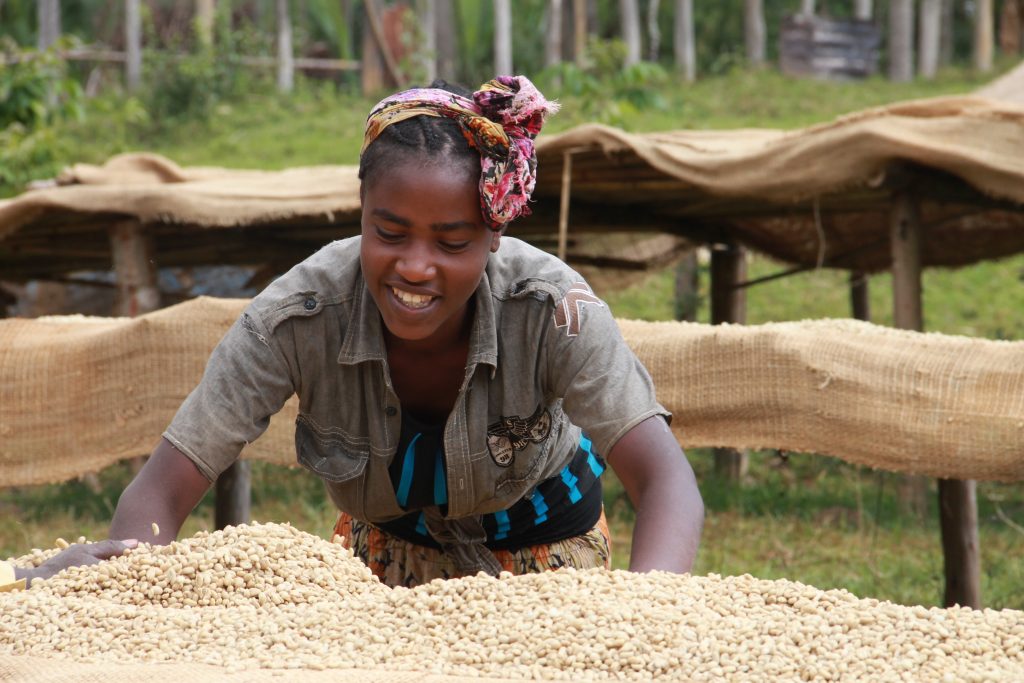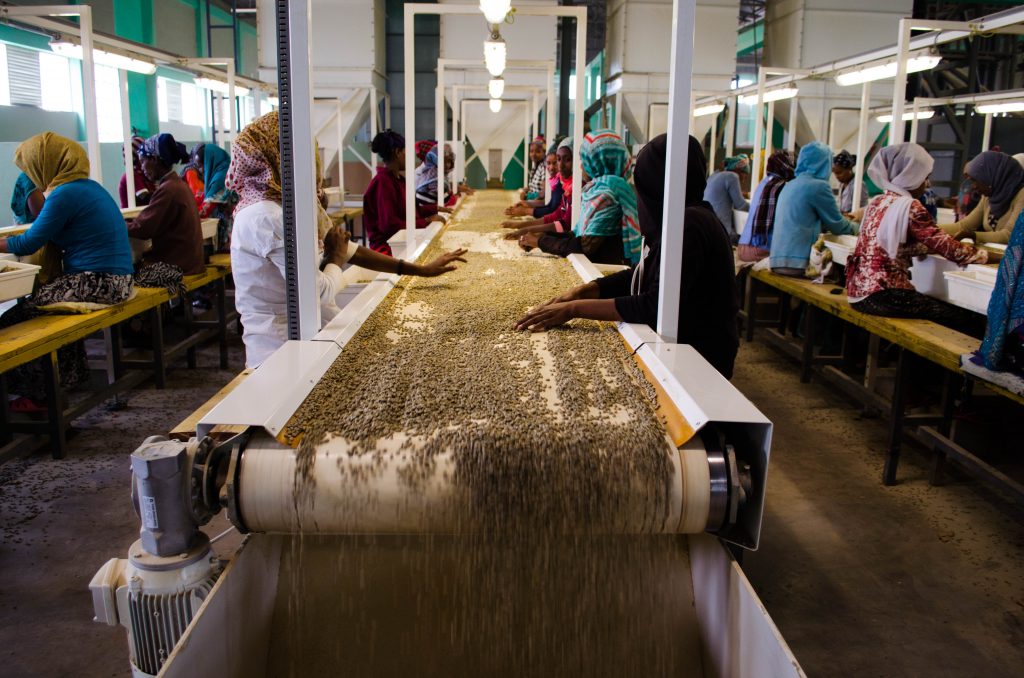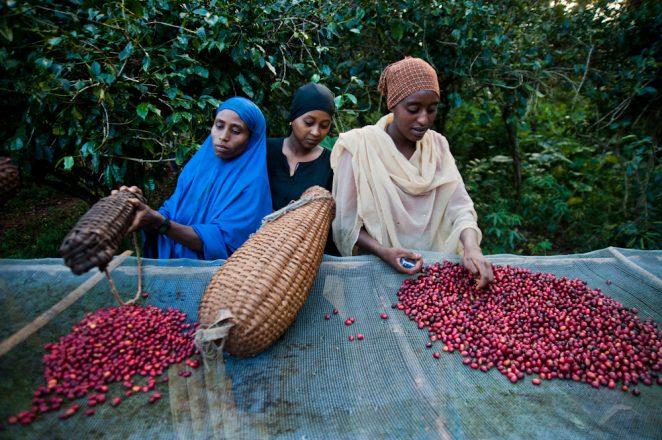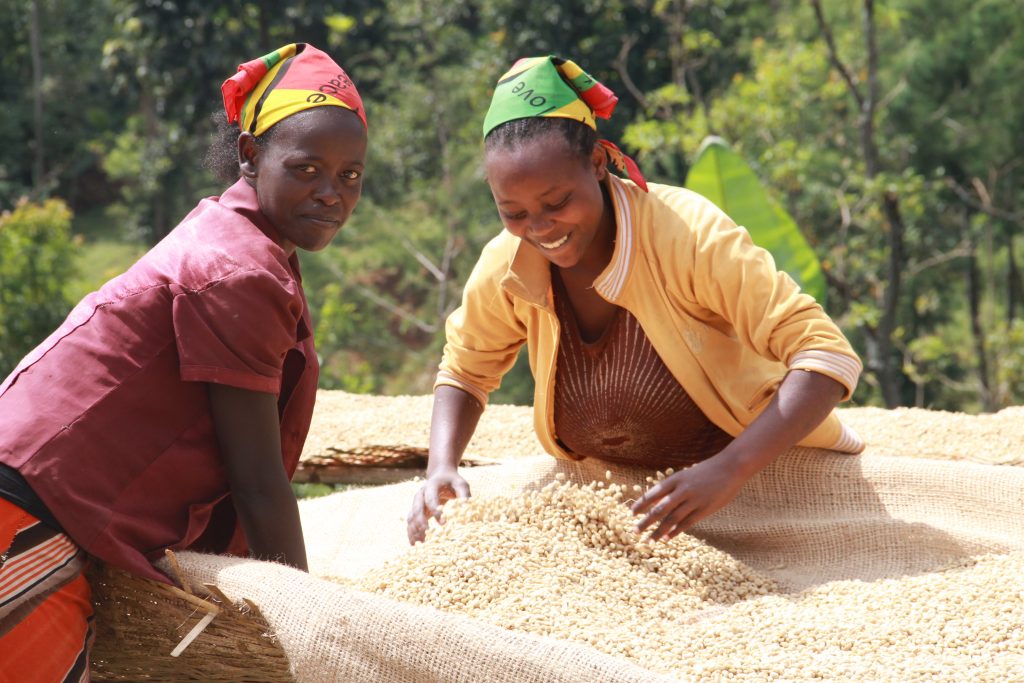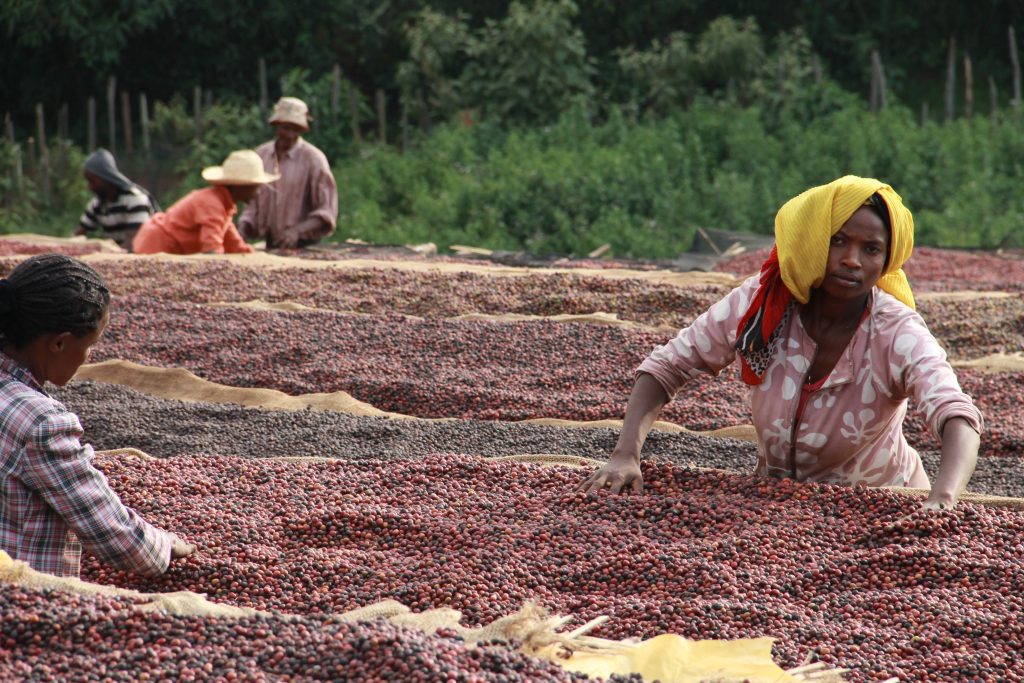The Growth and Transformation Plan II of the Democratic Republic of Ethiopia considers the development of the agro-industrial subsector as a priority, in order to achieve Ethiopia’s goal of becoming a middle-income country by 2025.
More than ten agro-industrial value chains have been identified for their transformational potential of Ethiopian Economy: among these there are tomato, wheat, avocado and coffee. To meet the food demand of its growing population, the country is currently a net importer of some agricultural products (e.g. wheat and wheat products ) and finished products whose consumption trends are increasing, particularly in urban areas (pasta, processed tomato, oil, etc). Imports of these products contribute to the negative import-export balance which risks to destabilize the Country's economic growth in the long term. Thus, an alternative approach is to substitute imports (both of raw materials and finished food products) with increased support to domestic agro-industrial development and investments. For these reasons, the government of Ethiopia has launched a program for the establishment of four pilot Integrated Agro-Industrial Parks (IAIP) in the regions of Amhara, Oromia, SNNPR and Tigray. The overall plan of the government is to build a total of 17 IAIPs in the main so-called Agricultural Commodities Procurement Zones (ACPZs) of the Country. The goal is to achieve the economic structural transformation of the country, shifting from agriculture-based to agro-industrial production in order to generate higher in-country added value, while responding to the demand of a growing agro-industry thanks to structured supply chains from the ACPZs. This vision is nowadays challenged by some constraints which prevent to unleash the growth potential of private sector investments such as: unclear institutional set-up, unstable and insufficient supply of raw materials from ACPZs, energy and water supply for industrial use and compliance with environmental regulations.
The Italian Agency for Development Cooperation (AICS) is committed to support the inclusive and sustainable economic development of the Ethiopian agro-industry subsector. Specifically, the development of priority agro-value chains and the Country’s agro-industrial infrastructures has been strongly backed by AICS in the last few years through bilateral and multilateral interventions, included in Pillar I of the Ethio-Italian Country Framework Agreements of 2013-15 and 2017-19. AICS interventions aim to strengthen inclusive and sustainable value chains, stimulate investments in the emerging industry, improve access to finance for farmers’ cooperatives and private entrepreneurship, strengthen infrastructure, promote gender equality, nutrition-sensitive agriculture and sustainable management of natural resources.
Our initiatives
Inclusive and Sustainable Development of Agricultural Value Chain in Oromia (ISVCDO)
The project intends to contribute to the modernization of the agricultural and agro-industrial sectors in five zones of Oromia Region, through the sustainable development of horticultural crops, durum wheat and processing tomato supply chains. The intervention is characterized by strong cross-cutting components, which aim at increasing the inclusion of women in the selected value chains and at improving the nutritional status of beneficiaries’ households, following a Nutrition-Sensitive Agriculture (NSA) approach.
Technical assistance for the creation of an agro-industrial park in Ethiopia
The IAIPs respond to the need to modernize agriculture, create jobs in rural areas, build infrastructure, attract FDI while creating linkages with local enterprises, and promote the Country’s rural industrialization. Within this context, AICS provided technical assistance to the Ministry of Trade and Industry, through UNIDO and FAO, for the elaboration of feasibility studies and business plans for IAIPs. The intervention focuses on the institutional support and capacity building of local Ethiopian Institutions in the four Regions where IAIPs are located: Amhara, Oromia, SNNPR and Tigray. Among several activities, one of the most relevant is the promotion of domestic and foreign investments and the technical support to the construction of infrastructures. Main institutions involved are the Ministry of Trade and Industry (MoTI) and the Regional Industrial Parks Development Corporations (RIPDCs). The project is phasing out in December 2019. AICS support will continue through the new project Sustainable Development of Agro Industrial Parks currently in its design phase.
Improving the sustainability and inclusiveness of the Ethiopian coffee value chain through private and public partnership
The project aims to improve the living conditions and income of small farmers and theirfamilies through supporting sustainable production, processing and export of Ethiopian Arabica Coffee. The initiative covers both urban (Addis Ababa) and rural areas (Delo Mena Woreda in Oromia, Aleta Wondo Wereda in SNNPR) and it represents a valuable example of involvement of the Italian private sector in development cooperation interventions, thanks to the participation of illycaffè and Ernesto Illy Foundation, two Italian excellencies in the coffee value chains worldwide. The project supports the creation and development of the Ethiopian Coffee and Tea Authority (ECTA), trough institutional capacity building, the strengthening of its international relationships and the establishment of the Addis Ababa Coffee Training Centre. The Centre will train expert technicians in different activities of the value chain, from coffee agronomics to brewing.
Inclusive and Sustainable Development of Agricultural Value Chain in Oromia and SNNPR (ISCDO-SNNPR)
With a soft loan contribution of 30 million Euros to the Federal Democratic Republic of Ethiopia Ministry of Agriculture, and 4 million Euros to FAO for technical assistance, the project is scaling-up the experience built by the project ISVCDO. The intervention aims at strengthening 5 agricultural value chains: wheat (soft and durum) and processing tomato in Oromia, avocado and pineapple in SNNPR. By creating efficient, effective, inclusive and sustainable agricultural value chains, oriented toward the satisfaction of the existing and potential market demand requirements, the initiative intends to constitute an enabling factor for the establishment of two of the four Ethiopian Integrated Agro-Industrial Parks (IAIPs): the Bulbula IAIP in Central-Eastern Oromia and the Yirgalem IAIP in Eastern SNNPR, where the Government of Ethiopia is promoting the establishment of agro-manufacturing enterprises, by local and Foreign Direct Investments (FDIs). Three cross-cutting components (gender mainstreaming, NSA and sustainable management of natural resources) strengthen the project intervention sustainability and inclusiveness.
Sustainable Development of Agro Industrial Parks
The project intends to build from the lessons learned from the projects ISVCDO and “Technical assistance for the creation of an agro-industrial park in Ethiopia”, and create complementary advantages with the project on Value chains development in Oromia and SNNPR. The specific objective is to support the inclusive and sustainable development of the 4 agro-industrial parks, improving management skills, the food safety system, working conditions and environmental impact. The project will potentially involve Italian institutions that have extensive experience in Agro-industrial development. To this end, Italy will disburse an amount of 22 million Euros in soft loan to the Government of Ethiopia (MoTI) and 2 million Euros in grant to UNIDO for technical assistance.
Improved rural livelihoods through support to Moringa Value Chain development in SNNPR - Ethiopia
In Ethiopia, the links between agriculture, agro-industry development and active women participation, have important implications on the fight against malnutrition, poverty reduction, biodiversity conservation and environmental sustainability. In this regard, the aim of this project is to develop the value chain of Moringa Stenopetala, a species endemic to Ethiopia, widely consumed in the intervention areas. The project will target women’s’ cooperatives and pre-cooperative groups, by improving agricultural and post-harvest practices, and by linking their production to formal markets. One processing facility, equipped with modern technologies and managed by one of the women’s’ cooperative, will increase value-addition locally, while training and capacity building of key institutions will ensure that proper standards are followed and met, in order to commercialize final processed products (moringa powder and oil) to high-end local and international markets. Additionally, one component of the project will target sustainable land management, increasing the ecosystems resilience. FAO and UNIDO will provide specific technical assistance to the Bureau of Agriculture and Natural Resources (BoANR) of SNNPR, main governmental implementing partner of the project. The BoANR will be supported with a contribution of 1,000,000 Euros, while FAO and UNIDO will receive a fund of 1,435,434 and 1,564,566 Euros respectively for the accomplishment of their assistance role.
Entrepreneurship development and employment creation for women in the leather sector
This project aims at identifying and strengthening women owned business in the leather sector in Addis Abeba. The project provides institutional and capacity development to improve business productivity and competitiveness and strengthens market linkages. In addition, it supports women entrepreneurs to scale up their business and increase their potential for job creation.
Drought Resilience and Sustainable Livelihoods Programme (DRSLP)
Within the framework of the IDDRSI (IGAD Drought Disaster Resilience and Sustainability Initiative) and the Ethiopia CPP (Country Programme Paper), this initiative aims at enhancing drought resilience and improving sustainable livelihoods of the pastoral and agro-pastoral communities of Afar Region. With an allocation of 22 million Euros as credit to the Ethiopian government and 1.650 million Euros of technical assistance.
